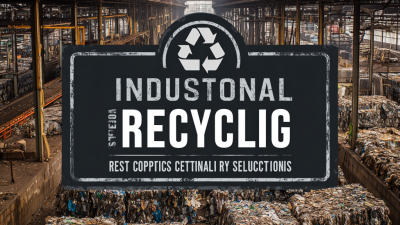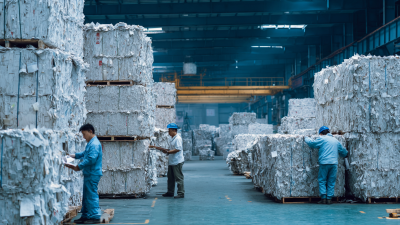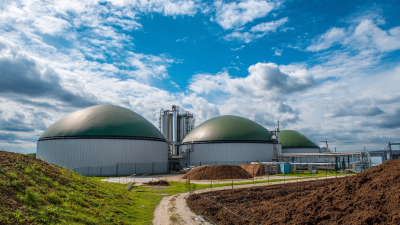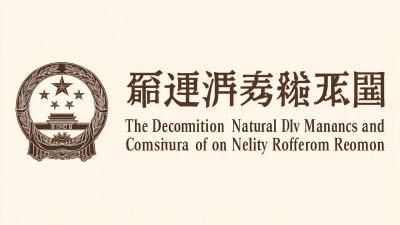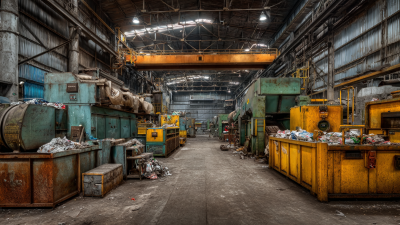As the world faces unprecedented environmental challenges, the Environmental Protection Industry has emerged as a crucial sector for sustainable development. The 138th Canton Fair in 2025 provides a unique platform to explore opportunities within this dynamic industry. According to the Global Environmental Market Report, the global market for environmental services is projected to reach approximately $1 trillion by 2025, highlighting the growing investment in technologies and solutions focused on pollution control, waste management, and energy efficiency.
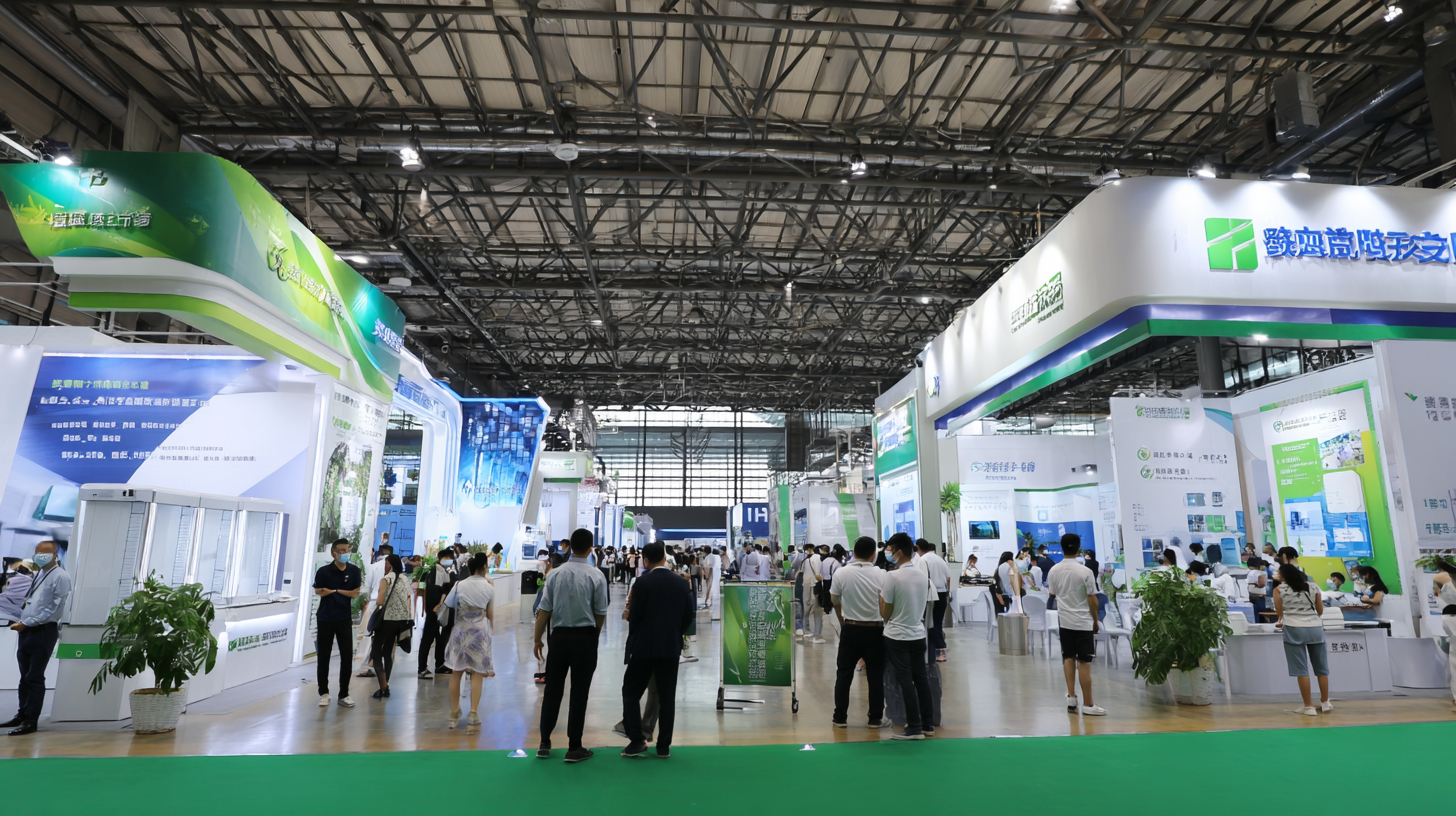
In China, the environmental protection industry is expected to see substantial growth, driven by government initiatives aimed at reducing carbon emissions and promoting sustainable practices. This fair will not only showcase innovations and technologies but also foster collaboration among stakeholders, providing insights into market trends and potential partnerships. Thus, the 138th Canton Fair serves as a pivotal event for professionals eager to engage with the burgeoning environmental protection industry and contribute to a more sustainable future.
The 138th Canton Fair in 2025 offers a prime opportunity to delve into emerging trends within the environmental protection industry. As global attention shifts towards sustainability, numerous exhibitors will showcase innovative technologies and practices aimed at reducing waste and enhancing ecological conservation. From cutting-edge waste management solutions to renewable energy systems, the fair promises to highlight the latest advancements that can reshape environmental policies and practices.
**Tips:** For attendees looking to maximize their experience, it’s essential to prepare a list of key areas of interest in environmental protection. Research exhibitors in advance, focusing on those presenting technologies aligned with sustainability goals. Networking with industry experts can provide valuable insights into best practices and future developments, making connections that may be beneficial long after the fair concludes.
The fair also underscores the importance of collaboration across sectors—government entities, businesses, and NGOs must all play a role in promoting environmental sustainability. Innovations such as green building materials and efficient recycling methods will be pivotal discussions, reflecting a collective push toward a more sustainable future. Engaging in panel discussions and workshops can deepen understanding and inspire action within your own organization or community.
As we approach the 138th Canton Fair in 2025, the environmental protection industry stands at a pivotal moment characterized by significant market growth projections for sustainable technologies. The overall trend indicates a robust shift towards sustainable practices across various sectors, which is increasingly crucial in a world grappling with climate change and resource depletion. Reports highlight that the global focus on sustainability is not just a moral imperative but also an economic opportunity, with industries recognizing the need to adapt to changing consumer preferences and regulatory landscapes.
In particular, the environmental protection sector is expected to witness substantial growth, paralleling trends observed in adjacent markets. For instance, the compound annual growth rate (CAGR) for many tech-driven industries is anticipated to flourish, signifying increasing investment in green technologies. As businesses strive for operational efficiency through sustainable means, the integration of advanced, eco-friendly solutions is likely to drive innovation and spur economic returns. The data suggests that the push for sustainability will create a ripple effect, impacting not just the environmental sector but also influencing broader economic dynamics, indicating a thriving future for companies prioritizing sustainability in their core strategies.
 The 138th Canton Fair is set to showcase a variety of innovative products and solutions, particularly in the environmental protection sector. With the event anticipated to attract over 200,000 global attendees, it serves as a premier hub for showcasing new trends and technologies. Notably, the inclusion of a service robot zone this year highlights the fair's focus on cutting-edge advancements that are drawing international buyers. This evolving landscape presents ample opportunities for businesses and buyers to collaborate on sustainable practices that address environmental concerns.
The 138th Canton Fair is set to showcase a variety of innovative products and solutions, particularly in the environmental protection sector. With the event anticipated to attract over 200,000 global attendees, it serves as a premier hub for showcasing new trends and technologies. Notably, the inclusion of a service robot zone this year highlights the fair's focus on cutting-edge advancements that are drawing international buyers. This evolving landscape presents ample opportunities for businesses and buyers to collaborate on sustainable practices that address environmental concerns.
In line with global demographic shifts, there's also a growing emphasis on inclusive design at the fair. As the senior population increases, innovative, user-friendly products tailored for older individuals are gaining traction among exhibitors. This focus on environmental protection and inclusive solutions underscores how the Canton Fair is not just a marketplace but a catalyst for fostering innovative practices that drive both commerce and social responsibility on a global scale.
The 138th Canton Fair in 2025 presents a significant networking platform for environmental professionals seeking to expand their connections within the industry. With a growing emphasis on sustainability, the global environmental protection market, valued at approximately $1 trillion in 2023, is projected to reach $1.5 trillion by 2027, according to industry reports. This trend underscores the urgency and importance of collaboration among professionals dedicated to innovative solutions for environmental challenges.
Attendees at the Canton Fair will have the opportunity to engage with top leaders and innovators in the environmental sector. Networking sessions will be tailored to focus on emerging technologies, regulatory developments, and best practices, fostering partnerships that can drive forward the agenda for environmental sustainability. As more than 26,000 exhibitors are expected to showcase their products and services, professionals can gain insights into market trends and form alliances crucial for navigating a rapidly evolving industry landscape.
As the environmental protection industry prepares for the 138th Canton Fair in 2025, regulatory impacts are set to play a crucial role in shaping the sector's landscape. Businesses must navigate a shifting regulatory environment marked by increasing pressure for compliance and sustainability. This comes in the wake of heightened scrutiny regarding environmental, social, and governance (ESG) factors, which are becoming central to corporate strategy. Organizations will need to stay ahead of evolving regulations that tackle climate change and resource conservation, transforming potential challenges into opportunities for innovation and growth.
Amid these regulatory changes, the intersection of geopolitical risks adds another layer of complexity. Companies in the environmental sector must be prepared for fluctuations driven by global political shifts, which can influence everything from supply chain dynamics to funding availability. As markets become more buyer-friendly, industry players that effectively manage risks and adapt to new regulations will position themselves advantageously. Embracing resilience amidst uncertainty will not only ensure compliance but also enhance competitive advantage in an increasingly regulated and interconnected world.

